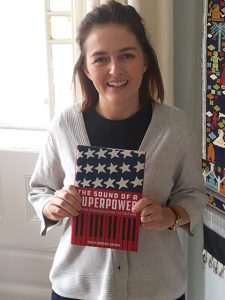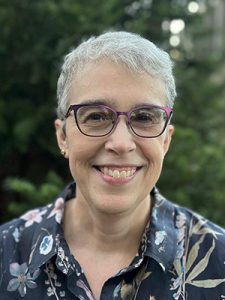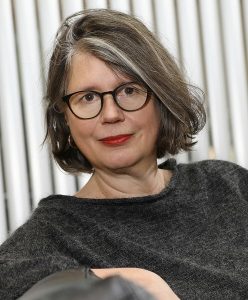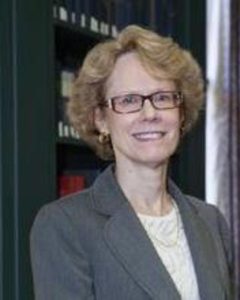Cooperation
Advisory Board

Emily Abrams Ansari is an associate professor of music history who focuses on 20th-century art, popular, and folk music. She is also Assistant Dean of Research for the Don Wright Faculty of Music at Western University, Canada. Ansari’s research explores politics and identity as they pertain to music, particularly focusing on national identity and music, protest song, and music and feminism in the second half of the twentieth century. Many of her journal publications and book chapters and her first book, The Sound of a Superpower: Musical Americanism and the Cold War (Oxford University Press, 2018), consider the effect of the Cold War on American classical music.

Danielle Fosler-Lussier is professor of music at The Ohio State University School of Music, where she has taught since 2003. She is an Honorary Member of the American Musicological Society (2023). Her book, Music in America’s Cold War Diplomacy (University of California Press, 2015) described musicians’ tours sponsored by the US State Department: these included rock ’n’ roll, bluegrass, blues, classical music and jazz. Dr. Fosler-Lussier’s current research describes the interaction between government and civic groups in building musical internationalism and music institutions in the United States from the 1920s to the 1980s.

Bjorn Heile is professor of music (post-1900) at the University of Glasgow. Heile’s research focuses mostly on music of the twentieth and twenty-first centuries. He is the author of The Music of Mauricio Kagel (Aldershot: Ashgate, 2006) and the editor of The Modernist Legacy: Essays on New Music (Aldershot: Ashgate, 2009), the co-editor (with Martin Iddon) of Mauricio Kagel bei den Darmstädter Ferienkursen für Neue Musik: Eine Dokumentation (Hofheim: Wolke, 2009), and (with Charles Wilson) of The Routledge Research Companion to Modernism in Music (London: Routledge, 2018). His most recent book is Musical Modernism in a Global Perspective (Cambridge University Press, 2024).

Hjálmar H. Ragnarsson is a composer and Dean Emeritus of the Iceland University of the Arts. As a composer, his work ranges from shorter solo compositions to larger symphonic works, from Lieder and choir works to musicals and opera, theater and film scores. Ragnarsson has written articles and essays on various academic and cultural-political subjects, as well as lecturing on matters of culture, science and the arts. His groundbreaking research on the music of Jón Leifs opened the way for worldwide recognition of Leifs’s music. He has been active in cultural politics and elected for leadership in various artists’ associations. He was appointed first Dean of the Iceland University of the Arts in 1998, serving three consecutive five-year terms.

Dörte Schmidt is a professor of musicology at the Berlin University of the Arts. Among other things, she directs the Bernd Alois Zimmerman Gesamtausgabe under the auspices of the Mainz Academy of Sciences and Literature and the Berlin-Brandenburg Academy of Sciences, of which she is also a member. She served as President of the Society for Music Research from 2017 to 2021. She has been Vice President of the Berlin State Music Council since 2010 and a member of the Executive Committee of the German Music Council since 2013.

Anne C. Schreffler is James Edward Ditson Professor of Music at Harvard University. Her research interests include the musical avant-garde after 1945 in Europe and America, with special emphasis on the political and ideological associations of new music. Topics of Shreffler’s recent articles include the canonization processes in twentieth century music; tradition and rupture in Beethoven and Webern; and different models for politically progressive music in the twentieth century. Shreffler has also written about the music and thought of Elliott Carter, including Elliott Carter: A Centennial Portrait in Letters and Documents (The Boydell Press, 2008). A co-edited volume with Felix Meyer, Carol Oja, and Wolfgang Rathert, Crosscurrents: American and European Music in Interaction, 1900–2000 (The Boydell Press, 2014), resulted from an international conference held at Harvard and at the Ludwig-Maximilians-Universität in Munich.


